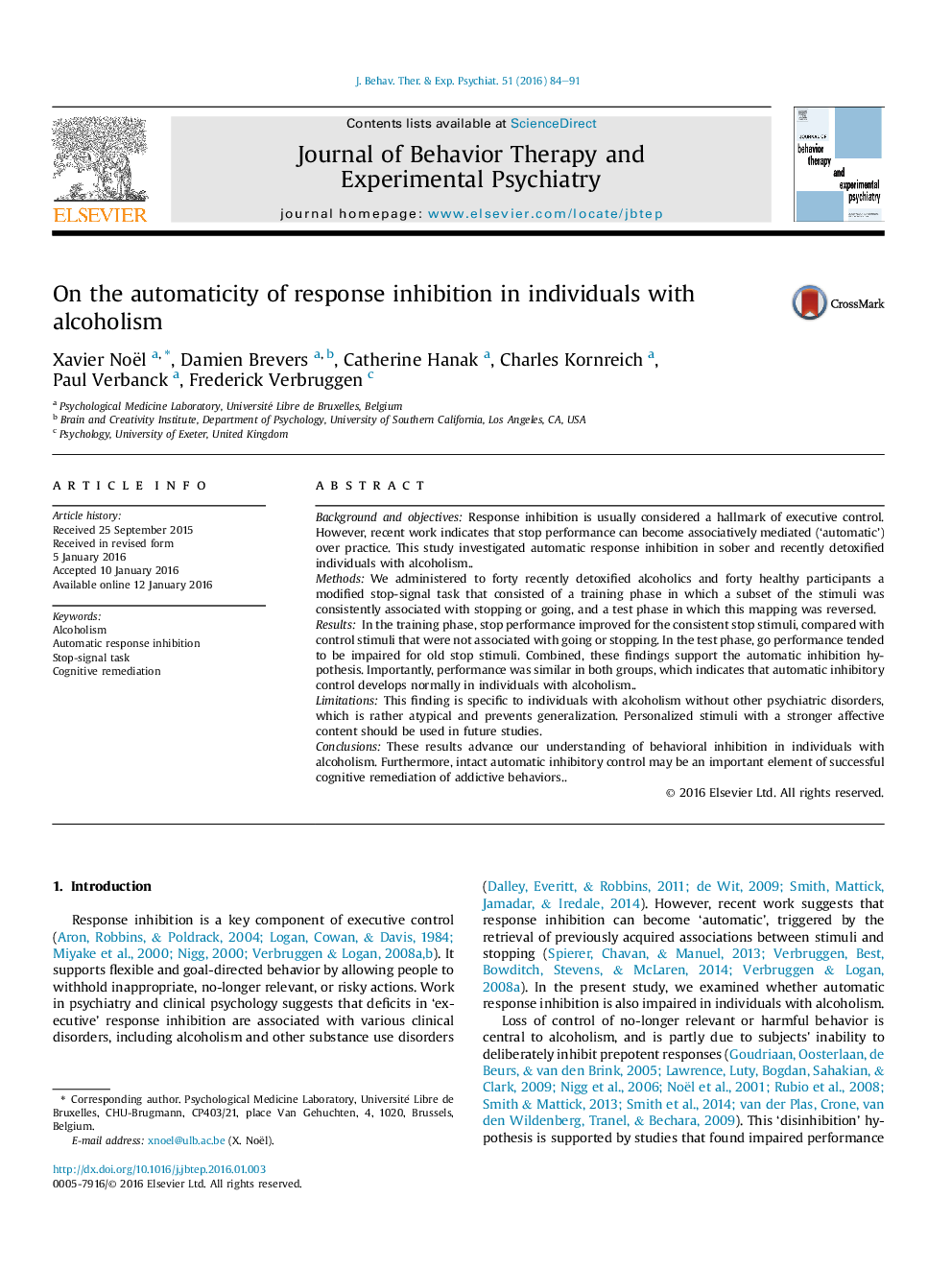| Article ID | Journal | Published Year | Pages | File Type |
|---|---|---|---|---|
| 910270 | Journal of Behavior Therapy and Experimental Psychiatry | 2016 | 8 Pages |
•Response inhibition is usually impaired in individuals with alcoholism.•Response inhibition can become ‘automatic’ over practice in healthy subjects.•Stimuli were consistently associated with stopping or going in a stop-signal task.•Stop performance improved for consistent stop stimuli in healthy controls and alcoholics.•Automatic inhibitory control develops normally in individuals with alcoholism.
Background and objectivesResponse inhibition is usually considered a hallmark of executive control. However, recent work indicates that stop performance can become associatively mediated (‘automatic’) over practice. This study investigated automatic response inhibition in sober and recently detoxified individuals with alcoholism..MethodsWe administered to forty recently detoxified alcoholics and forty healthy participants a modified stop-signal task that consisted of a training phase in which a subset of the stimuli was consistently associated with stopping or going, and a test phase in which this mapping was reversed.ResultsIn the training phase, stop performance improved for the consistent stop stimuli, compared with control stimuli that were not associated with going or stopping. In the test phase, go performance tended to be impaired for old stop stimuli. Combined, these findings support the automatic inhibition hypothesis. Importantly, performance was similar in both groups, which indicates that automatic inhibitory control develops normally in individuals with alcoholism..LimitationsThis finding is specific to individuals with alcoholism without other psychiatric disorders, which is rather atypical and prevents generalization. Personalized stimuli with a stronger affective content should be used in future studies.ConclusionsThese results advance our understanding of behavioral inhibition in individuals with alcoholism. Furthermore, intact automatic inhibitory control may be an important element of successful cognitive remediation of addictive behaviors..
